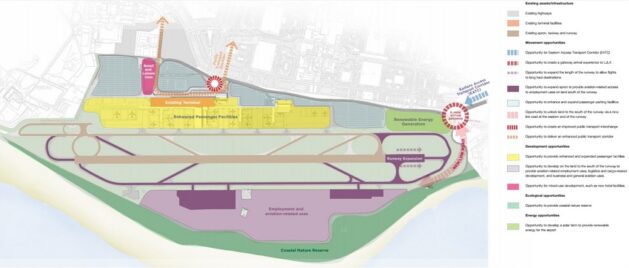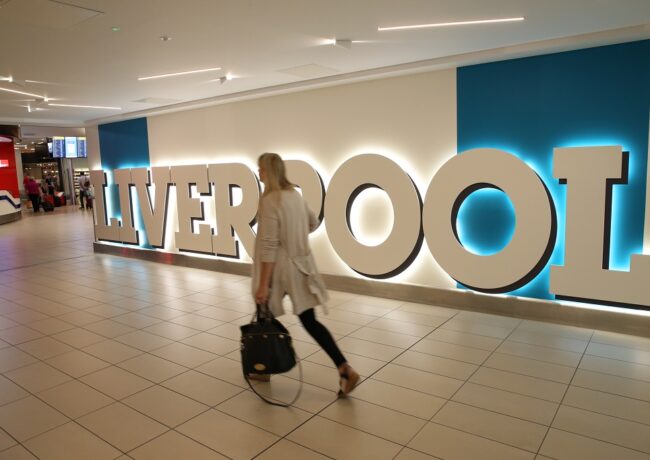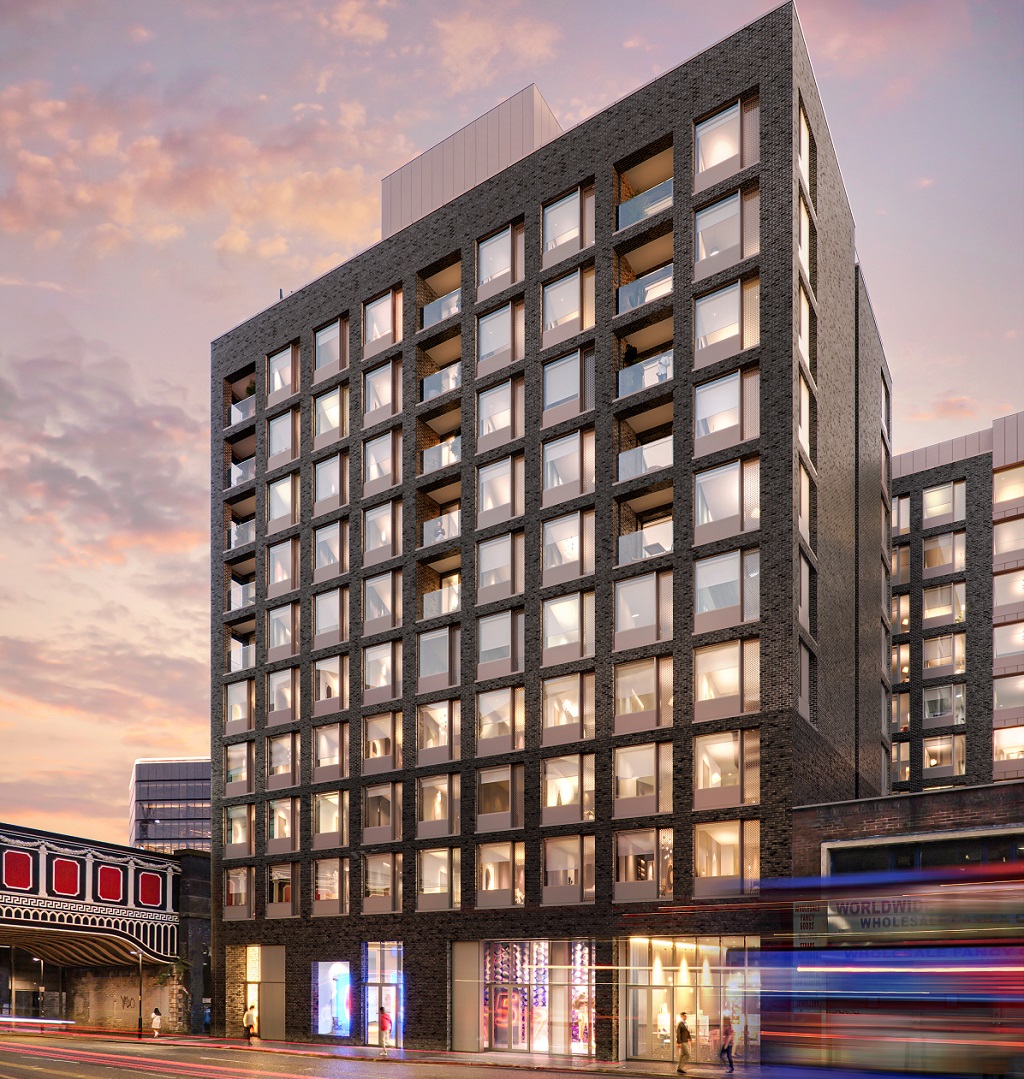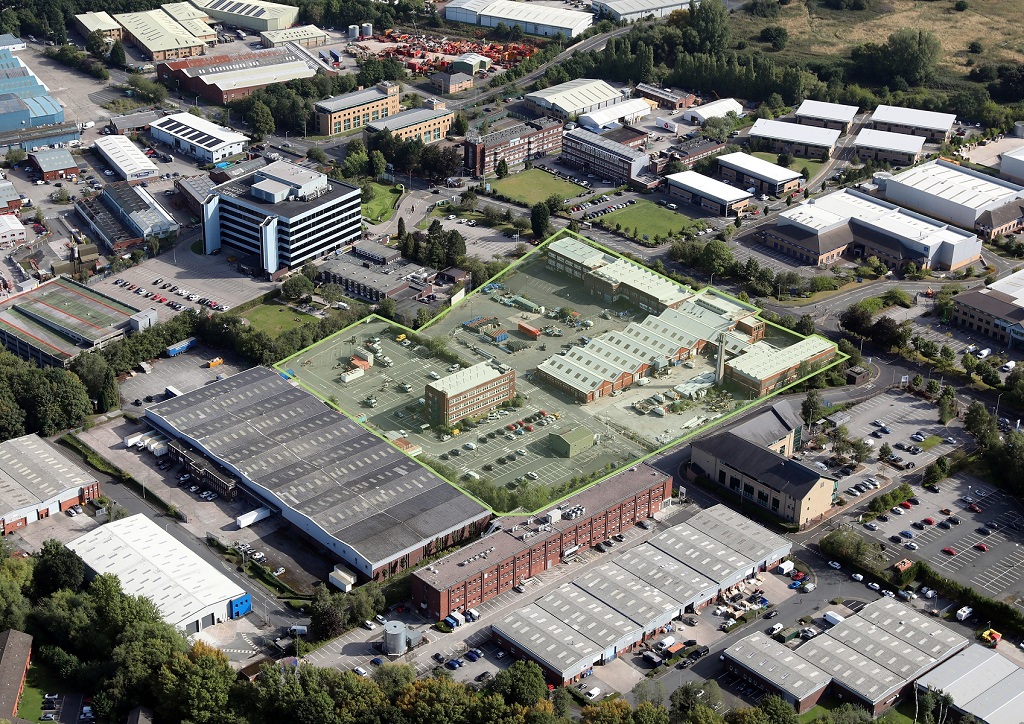LJLA outlines £100m investment in terminal and runway extension
Liverpool John Lennon Airport has revealed plans to spend £100m on a series of investments in its passenger facilities, including an expansion of the terminal building, new hotels, and a potential extension of its runway, as part of its growth strategy for the next 30 years.
The Airport first started consultations on its 2050 masterplan, supported by Turley, in August last year, and has now endorsed the plan which is intended to increase passenger numbers to 11.2m a year.
LJLA currently records around 5m passengers annually, and by 2030, it hopes to attract 7.8m passengers a year. This ambition will be supported by a major investment programme which is expected to cost £100m over the next 10 years.
This includes an expansion of the existing terminal; additional car parking; hotels; food, drink, and retail; and a possible extension of its runway. These
According to Turley, these could increase the Airport’s annual GVA impact to £625m and could support over 12,000 jobs across the city region by 2030. It also hoped the investment would help to bring more long-haul international routes to LJLA.
The Airport has also prioritised employment space at the site, which could potentially include logistics, advanced manufacturing space, and offices. It is estimated this could generated £270m a year in additional GVA, and would help to attract cargo and specialist aviation businesses to the site.
Airport chairman Robert Hough said: “Since investing in the business over 20 years ago, the Peel Group have always believed in this Airport’s tremendous potential and today sees the launch of the latest chapter in what has been a tremendous success story for the Airport and the region.
“We cannot afford to stand still in what remains a very challenging economic and competitive environment, which is why we have set out our strategic vision for the Airport going forward in order to deliver continued success.”
Peel reassumed full control of the airport in 2014, buying up the 65% stake it had previously sold. A 20% stake has since been sold to Liverpool City Council.

The masterplan went out to consultation last August




